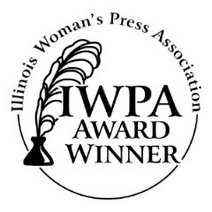In the Media: Brit Lit Rises Again
Yesterday, I found two articles in the Chicago Tribune relating to English literature, to old classics among the many that I tried to convince my community college students were worth reading.
Actually, the news item, relegated to the sixteenth page of section one, wasn't very surprising: "At auction, Bard brings $5 million." As Barbara Gaines' thriving Chicago Shakespeare Theater shows, Shakespeare has never really disappeared from the scene. And this rare copy of the First Folio, the edition in which Macbeth and Twelfth Night were first published, was bought and sold at Southeby's in London.
That's appropriate, and the US has its rare book collectors too. I guess I appreciated the description: "Widely regarded as one of the most important books in the English language." I also imagined my former students asking, "Why would someone pay that much for that book?"
The other article, in the Movies section, was more surprising. It was headlined, "Ancient epic poem Beowulf seen through a modern prism," a review by Michael Phillips of Beowulf and Grendel, and it gets two stars. Reviewer Phillips calls it a mixed-up and unbalanced picture, made nearly worthwhile by its filming location in Iceland and "the bone-white sea creature--Death, glimpsed only as a forearm with clawlike digits--who appears now and then..."
Apparently, in a revisionist heightening of the poem's tensions between pagan Norse legend and Christianity, Grendel "becomes a victim of blind, brutish racism." Who's the hero, Beowulf or Grendel? Reviewer Phillips also criticizes the "dizzying variety of accents" brought by the Scottish, Swedish, Icelandic, and Canadian cast (Gerard Butler, Steffan Skarsgard, Invar Sigurdsson, and Sarah Polley).
The review doesn't mention Grendel's mother, another impressive monster in the original epic. Perhaps director Sturla Gunnardson left her out. I may have to see this film to find out. When I first read this epic many years ago, I especially liked the idea of a female monster.
In my mostly unsuccessful efforts to revive traditional Brit Lit survey courses and Beowulf seven or eight years ago, I emphasized the modern-day appeal of monsters. Perhaps I would have been more successful emphasizing racism and discrimination. It's much easier to hate racism and discrimination than today's almost cuddly "monsters."
Anyway, I'm glad to see that Beowulf and Grendel have been revived once again.
Copyright 2006 by Marlys Marshall Styne
Saturday, July 15, 2006
Subscribe to:
Post Comments (Atom)


















No comments:
Post a Comment